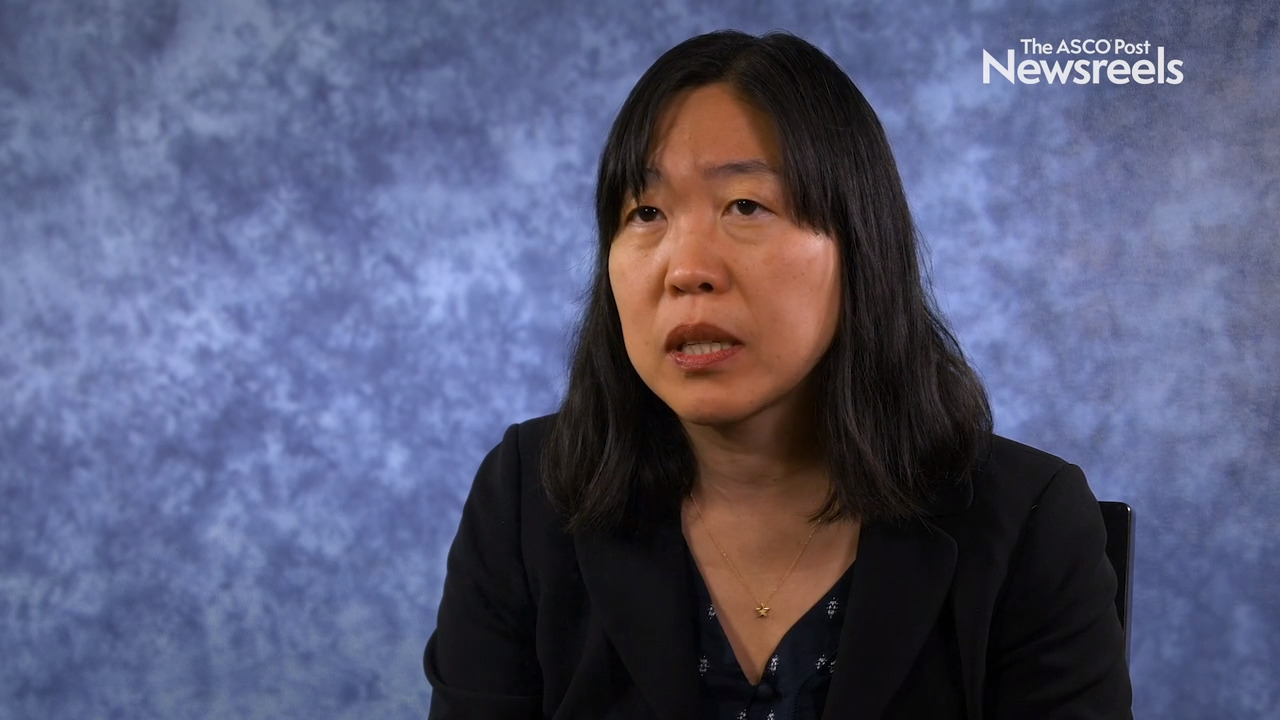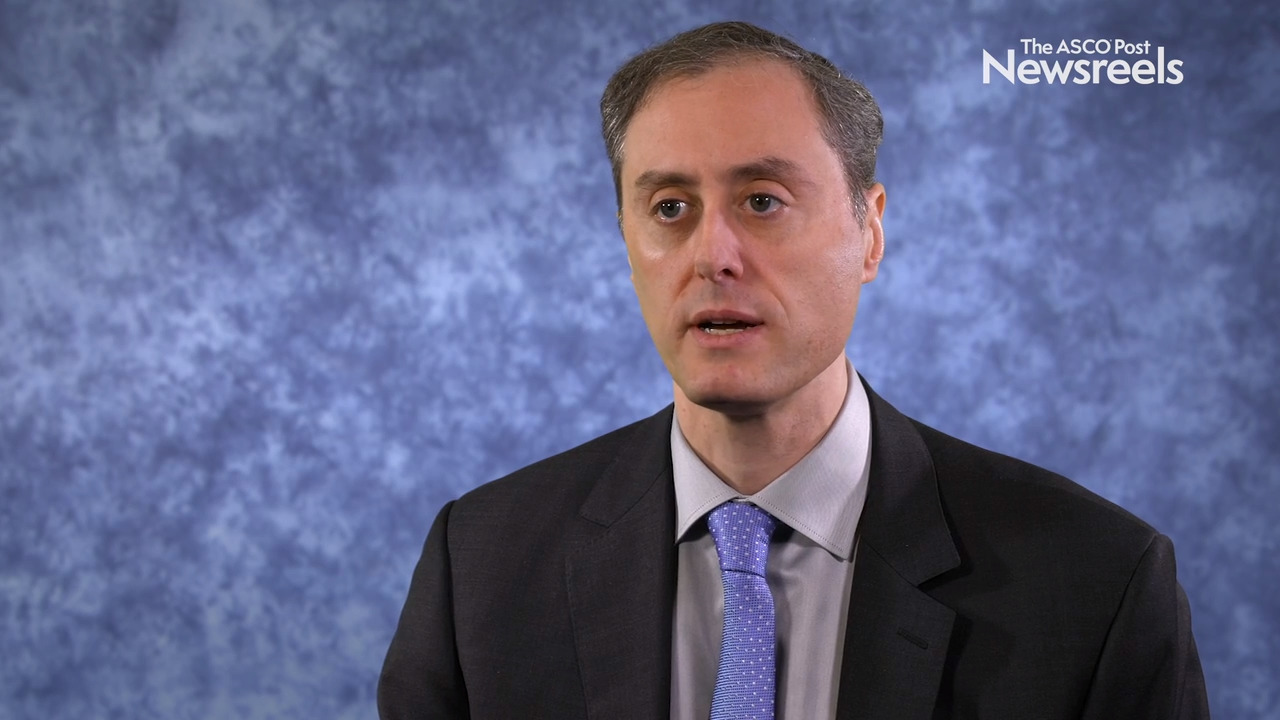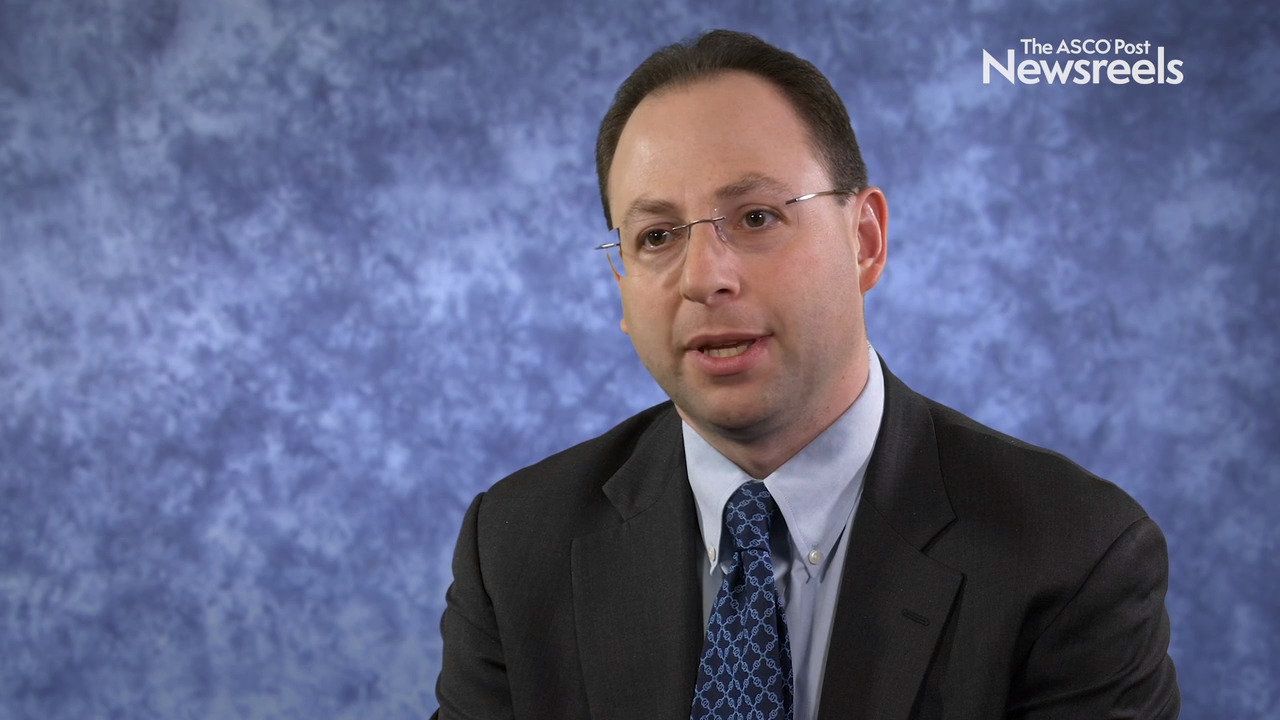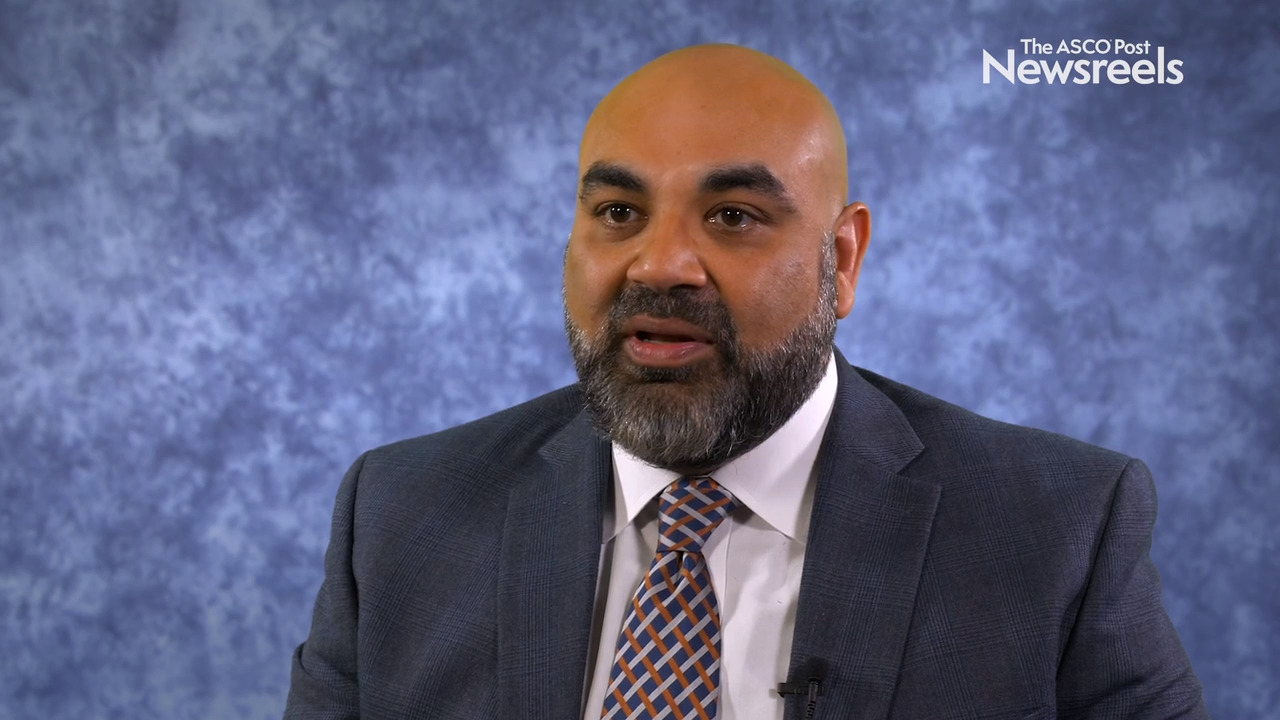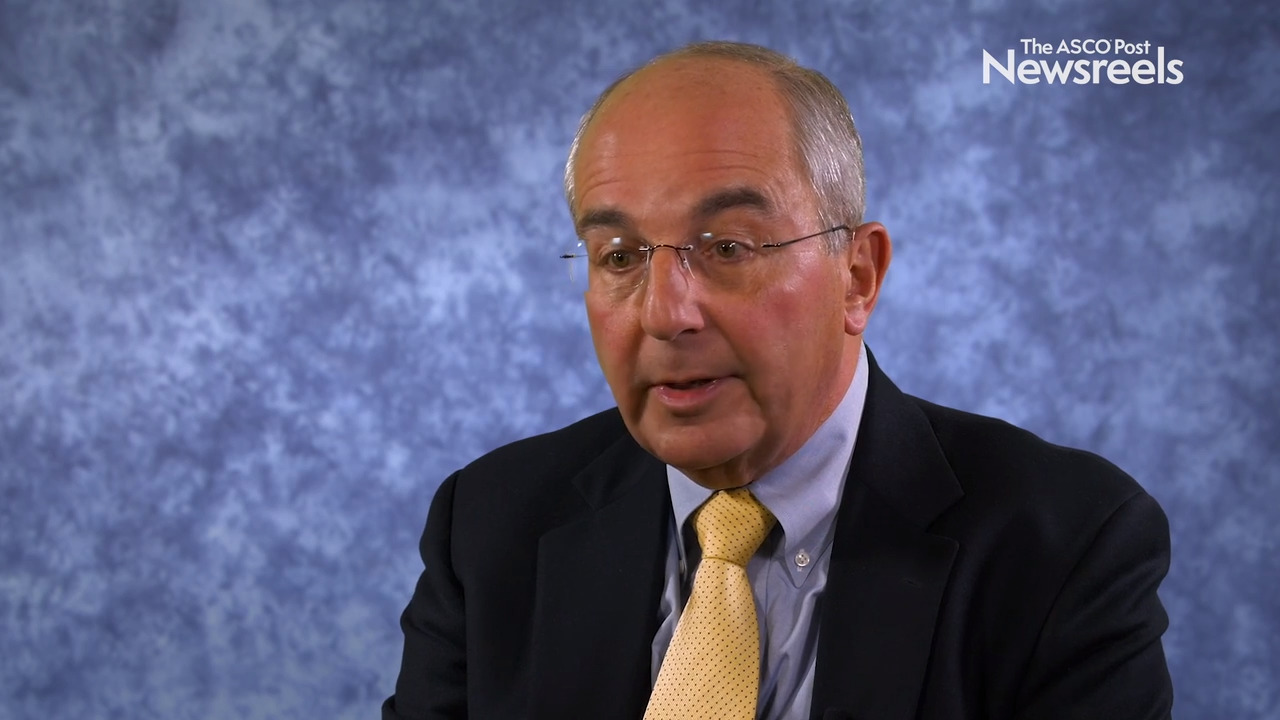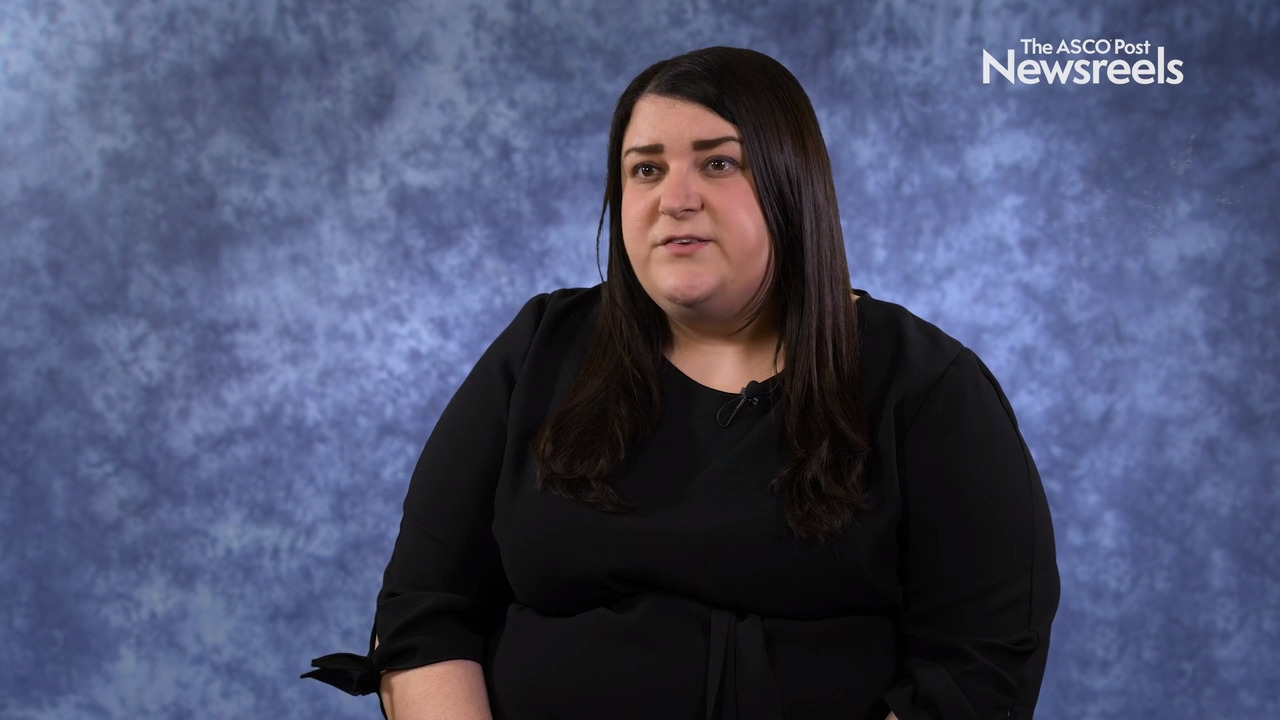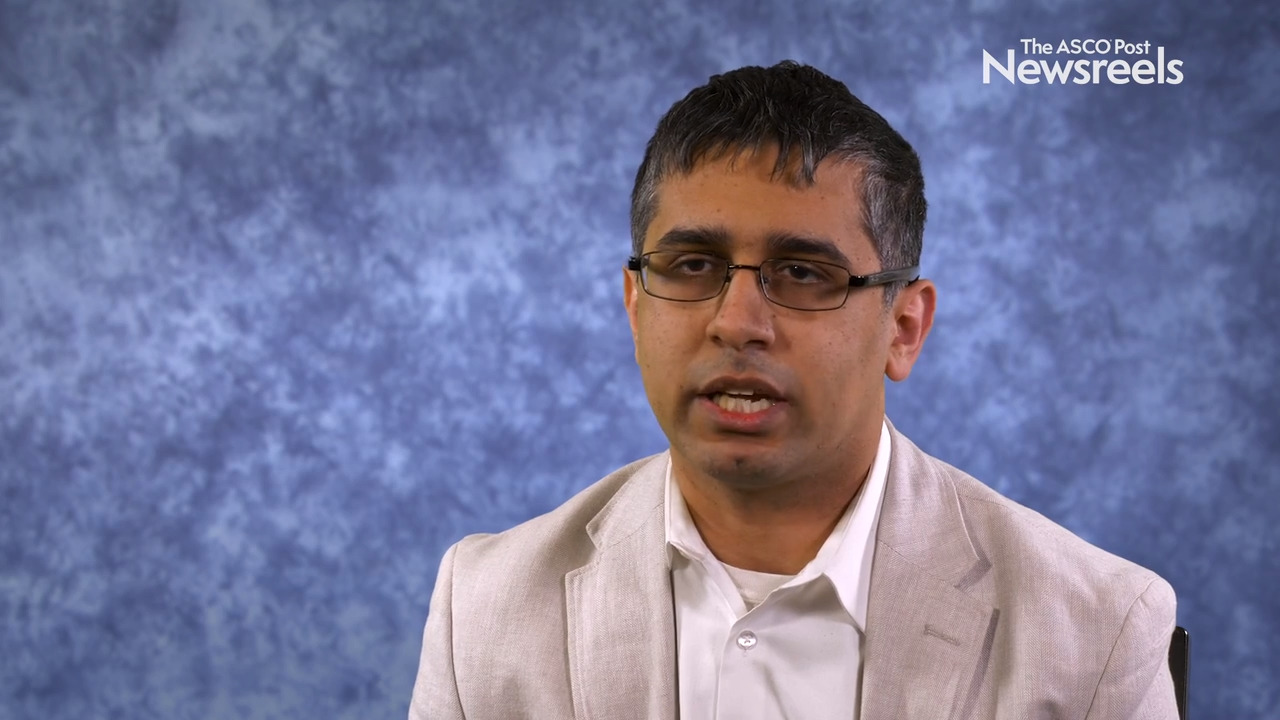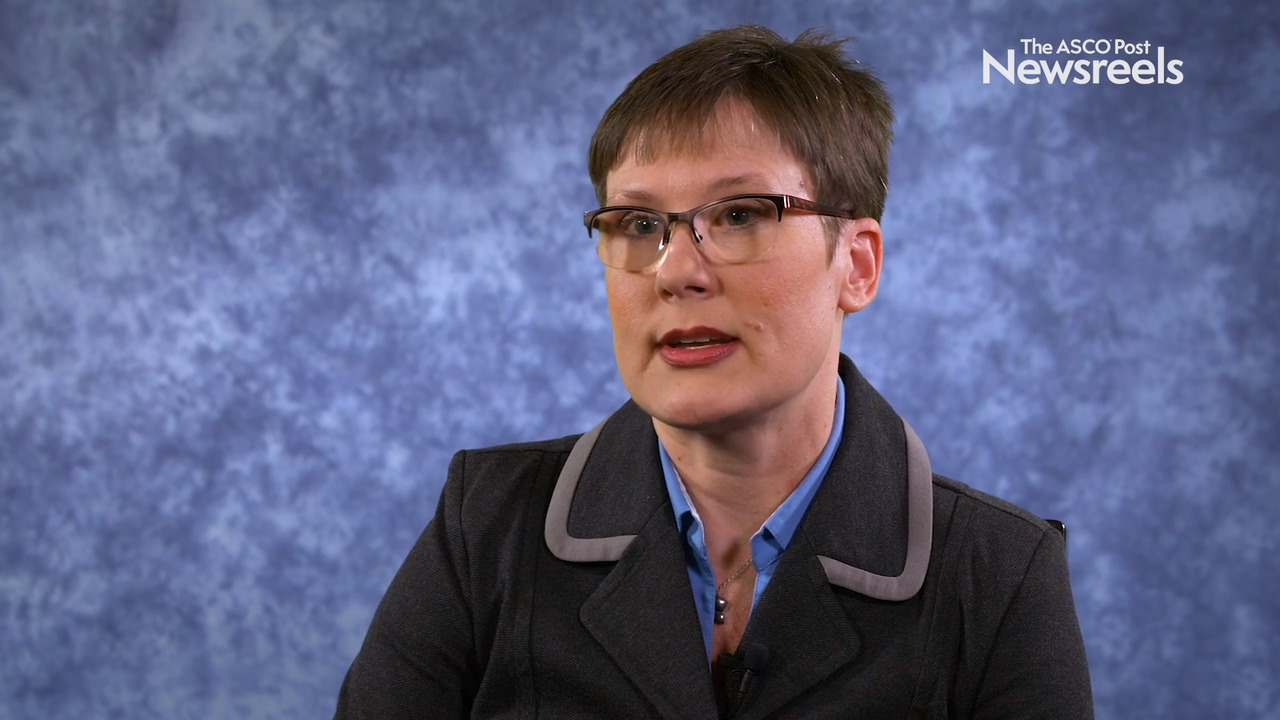2020 Multidisciplinary Head and Neck Cancers Symposium
Better Mental Health Screening Needed for Survivors of Head and Neck Cancer
The threat posed by head and neck cancer extends well beyond the physical disease, according to research presented at the 2020 Multidisciplinary Head and Neck Cancers Symposium.1,2 The pair of studies...
Study Finds Chemoradiation Plus Bevacizumab Safe and Feasible in Locally or Regionally Advanced Nasopharyngeal Cancer
The addition of bevacizumab to the current standard of care of chemoradiation therapy is safe and feasible for the treatment of locally or regionally advanced nasopharyngeal cancer, according to data ...
Expert Point of View: Charu Aggarwal, MD, MPH
Charu Aggarwal, MD, MPH, Leslye M. Heisler Assistant Professor for Lung Cancer Excellence at the Perelman Center for Advanced Medicine, University of Pennsylvania, underscored the paucity of treatmen...
Pembrolizumab Plus Cetuximab Shows Antitumor Activity in Squamous Cell Head and Neck Cancer
The first trial to evaluate anti–programmed cell death protein 1 (PD-1) blockade combined with epidermal growth factor receptor (EGFR) inhibition in head and neck squamous cell carcinoma demonstrates...
Expert Point of View: Sue Sun Yom, MD, PhD
Sue Sun Yom, MD, PhD, Professor of Radiation Oncology & Otolaryngology–Head and Neck Surgery at the University of California, San Francisco, Helen Diller Family Comprehensive Cancer Center, said ...
Pembrolizumab Plus Radiotherapy Worthy of Further Study in Locally Advanced Squamous Cell Head and Neck Cancer
The combination of the checkpoint inhibitor pembrolizumab and definitive radiation therapy appears to be a safe and feasible option for patients with locally advanced head and neck cancer who are not ...
Expert Point of View: Tanguy Y. Seiwert, MD
Moderator of the session, Tanguy Y. Seiwert, MD, Director of the Head and Neck Cancer Oncology Disease Group and Assistant Professor of Oncology at Johns Hopkins University, in Baltimore, underscored...
Study Suggests Adjuvant Everolimus May Benefit Patients With Advanced Head and Neck Cancer
The mTOR inhibitor everolimus, used to treat breast and kidney cancers, may benefit patients with advanced squamous cell carcinoma of the head and neck, according to data presented at the 2020 Multidi...
Expert Point of View: Tanguy Y. Seiwert, MD
Tanguy Y. Seiwert, MD, moderator of the session on the phase II trial of neoadjuvant nivolumab with or without ipilimumab in patients with oral cavity cancer, underscored concerns about differences in...
Phase II Trial Finds Neoadjuvant Immunotherapy Feasible in Oral Cavity Cancer
The results of a phase II study suggest that a short course of immunotherapy prior to surgery for oral cavity cancer may trigger tumor regression, possibly providing long-term benefits for patients. A...
Immune-Restorative Agent May Boost Immunotherapy Response in Advanced Head and Neck Cancer
Immune modulation with checkpoint inhibitors has shown beneficial effects in advanced head and neck squamous cell carcinoma, but responses have been limited to a small number of patients. According to...
Expert Point of View: Sue Sun Yom, MD, PhD
Sue Sun Yom, MD, PhD, Professor of Radiation Oncology & Otolaryngology–Head and Neck Surgery at the University of California, San Francisco, Helen Diller Family Comprehensive Cancer Center, said ...
Pembrolizumab Plus Radiotherapy Worthy of Further Study in Locally Advanced Squamous Cell Head and Neck Cancer
The combination of the checkpoint inhibitor pembrolizumab and definitive radiation therapy appears to be a safe and feasible option for patients with locally advanced head and neck cancer who are not ...
Sue Sun Yom, MD, PhD, on HPV-Associated Oropharyngeal Cancer: Challenges in De-intensifying Radiation Therapy
Sue Sun Yom, MD, PhD, of the University of California, San Francisco, talks about the variety of evolving ways to deintensify radiation therapy, the critical need to counsel patients on the risks and ...
Jared Weiss, MD, on Squamous Cell Carcinoma of the Head and Neck: When Standard Therapy is Contraindicated
Jared Weiss, MD, of the University of North Carolina, Chapel Hill, discusses outcomes for patients with stage III or IV disease who are ineligible for the standard treatment of cisplatin plus radiothe...
Jonathan D. Schoenfeld, MD, MPH, on Oral Cavity Cancer: Neoadjuvant Nivolumab With or Without Ipilimumab
Jonathan D. Schoenfeld, MD, MPH, of Dana-Farber Cancer Institute and Brigham and Women’s Hospital, discusses phase II study results with the PD-1 inhibitor nivolumab or the combination of PD-1/CTLA-4 ...
Gopal K. Bajaj, MD, MBA, on Reducing Opioid Use in Patients With Head and Neck Cancer Undergoing Radiotherapy
Gopal K. Bajaj, MD, MBA, of the Inova Schar Cancer Institute, discusses the results of a small study that showed prophylactic gabapentin can be safely and effectively used to significantly reduce pain...
David Adelstein, MD, on Guidelines for Treating HPV-Associated Oropharyngeal Squamous Cell Carcinoma
David Adelstein, MD, of the Cleveland Clinic, discusses the hypothesis that treatment can be de-intensified in patients with HPV-associated oropharyngeal cancer and a good prognosis.
Jill Gilbert, MD, on HPV-Associated Oropharyngeal Cancer: Challenges in De-intensifying Systemic Therapies
Jill Gilbert, MD, of Vanderbilt University Medical Center, discusses this ongoing area of investigation and which patients can safely undergo a de-intensification of treatment. Based on two randomized...
Assuntina G. Sacco, MD, on Head and Neck Squamous Cell Carcinoma: Trial Results on Pembrolizumab and Cetuximab
Assuntina G. Sacco, MD, of the University of California, San Diego, discusses the results of a small phase II study, which suggest that pembrolizumab plus cetuximab may show activity for platinum-refr...
Nadeem Riaz, MD, on Established and Emerging Biomarkers for Immunotherapy in Head and Neck Cancer
Nadeem Riaz, MD, of Memorial Sloan Kettering Cancer Center, discusses the biomarkers that have emerged for immunotherapy and their tumor microenvironments, from PD-L1 staining and the Combined Positiv...
Carryn M. Anderson, MD, on Reducing Severe Oral Mucositis and Its Effect on Patient Outcomes
Carryn M. Anderson, MD, of the University of Iowa Hospital, discusses the investigational agent GC4419, previously shown to be safe and effective in decreasing the duration, incidence, and severity of...
Francis P. Worden, MD, on the Role of Induction Chemotherapy in Laryngeal Preservation
Francis P. Worden, MD, of the University of Michigan Health System Comprehensive Cancer Center, explores the use of novel biomarkers that may help predict response to induction chemotherapy and surviv...
2020 Head and Neck Cancers Symposium: Immune Restorative Agent May Boost Immunotherapy Response in Advanced Head and Neck Cancer
Immune modulation with checkpoint inhibitors has shown benefit in advanced head and neck squamous cell carcinoma, but responses have been limited to a small number of patients. According to data prese...
2020 Head and Neck Cancers Symposium: Adjuvant Everolimus for Advanced Head and Neck Cancer
The mTOR inhibitor everolimus may extend progression-free survival for patients with advanced head and neck cancer who are at high risk for recurrence after standard treatment. Patients enrolled in a ...
2020 Head and Neck Cancers Symposium: Nivolumab With or Without Ipilimumab for the Neoadjuvant Treatment of Patients With Oral Cavity Cancer
Results from a new clinical trial suggest that neoadjuvant immunotherapy for oral cavity cancers may elicit tumor regression, which could provide long-term benefit for patients. Findings were presente...
2020 Head and Neck Cancers Symposium: Pembrolizumab Plus Radiotherapy for Platinum-Ineligible Patients With Locally Advanced HNSCC
A new phase II trial has found that the combination of radiation therapy and pembrolizumab led to improved survival outcomes and acceptable toxicity for patients with locally advanced head and neck sq...
